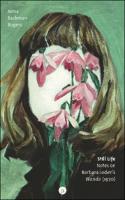Still Life
Notes on Barbara Loden's "Wanda" (1970)
Author(s)
Backman Rogers, Anna
Collection
ScholarLedLanguage
EnglishAbstract
"There is indeed a ""miracle"" in the 1970 film Wanda. This film has survived, despite decades of neglect, to emerge into the fuliginous light of an era that may just be ready to strain at grasping its harsh and brutal truths -- truths that reveal the imbrication of the psychic in the social and the experiential in political structures. Barbara Loden's film dares to suggest that the social and ethical functions of art should not necessarily be redemptive – that salvation is a cheap and spurious form of consolation that few can afford in this world. This film, made by a woman who knew all too well what it means to be defined through and by her material circumstances (and her relationships to men), and that is so relentlessly ferocious in its refusal to assuage and comfort the viewer, has always been a form of future feminism. Wanda does not brook the comforts of positivity, of aspiration, or even the luxury of selfhood.
This film, Still Life contends, is so radical in its feminist-anti-capitalist politics of refusal that we are still struggling to keep up with it. It delineates precisely how the personal is political and why this matters now more than ever. Wanda, a film about a woman who refuses to be saved or to save herself, who lacks the means and energy to alter anything in her life, who lives in a permanent state of blockage, impasse and failure is, as this publication suggests, the film of our contemporary moment."
Keywords
1970s cinema, Barbara Loden, feminist studies, film studies, US independent cinema, Wanda (film)DOI
10.53288/0326.1.00ISBN
9781953035684, 9781953035691Publisher
punctum booksPublisher website
https://punctumbooks.com/Publication date and place
Brooklyn, NY, 2021Imprint
Dead Letter OfficeClassification
Film history, theory or criticism
Feminism and feminist theory


 Download
Download